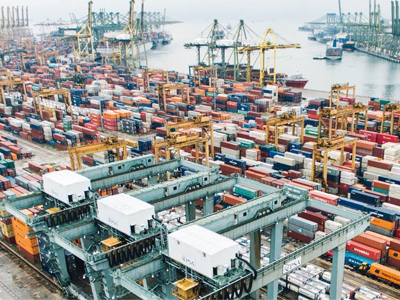
Purchasing in medium-sized businesses is characterised by features which add facets to and, in part, even contradict the ideal image of purchasing as is depicted in business studies text books.
These features begin with the structure of the busi-ness. In larger organisations, functions such as strategic purchasing, operational purchasing, master data maintenance and supplier account support are the responsibility of separate people and often separate departments, but in medium-sized organisations this is organised in “personal union”. In other words, every employee must be able to deal with everything from the proverbial paper clip through to a tanker containing raw materials
and be required to be able to plan every ordered product and track the entire purchasing process.They could be required to quickly check the product of a potential new supplier, whilst negotiating pricing at the same time as checking the weekly invoices.
Medium-sized organisations are usually further characterised by purchasing in smaller quantities, although the variety of products ordered is often the same as with larger sized companies. This affects the structure of the supplier. While huge quantities of products are delivered to large companies, smaller quantities are of no interest to the large manufacturers, and these quantities are passed over to the dealers and distributors.
The relationship the distributors have with medium-sized companies is mainly on a level playing field. Within the supply chain there are similar targets and goals and the service concept is alive and well. The word “distributor” comes from the Latin word “distribuere”, which means to share out. And exactly this is their main purpose: to share out manufacturer’s products across the market. A business professional will soon notice any differences in the sales concept and become savvy to any potential conflicts which may arise. It’s also interesting that, in German, distributors call the manufacturers “Prinzipale”, taken from the latin word “principalis”, meaning chief or principal, and the word means ruler in Italian.

This is how the chemical industry in Fürsten slightly exaggerated, is structured. They supply us directly with their products but also serve their customers through their dealer network, in order to be able to supply their products to the entire market.
So what is the status of the medium-sized company in this area? Firstly, it’s clear that the purchasing power of a medium-sized business carries little influence on the large, multinational companies. An area of tension exists in which the dealer attempts to offer good delivery terms.
This is often the case, but they aren’t able to influence price negotiations. Naturally the industry and the dealers set their selling prices independently of each other. In the tightknit market structure of the chemical industry, the prices are very similar and the market proximity is so large that market trends, which tend to happen at the same time, even with companies competing against each other, are passed on. But minor differences remain, and these need to be taken advantage of by the buyers. Medium-sized businesses have no influence over price changes or the timing of these.
Price increases affect medium-sized companies with full force.

Negative consequences, such as for example with Isocyanate over the last year, have an immediate impact on economic outcome and the possibilities of reacting against them are limited. The many short-term price increases, coupled with a limit on output, affect medium-sized companies like VIACOR with full force. Their customers won’t be affected by a price change or any price increase will be delayed, so the price differential needs to be borne by the company itself.
The best-case scenario would be that our custom-ers wouldn’t be affected by any disruption in the raw materials markets. Purchasing departments would regulate quantities, negotiate pricing and smooth over any logistical problems, so that the price journey can enjoy calm waters ahead. Even the smallest changes between suppliers are taken into account, and relationships
with other similar-sized customers can be utilised in planning joint purchasing. Stock levels are managed in the best possible way, which also benefits our customers. New suppliers are sourced and found, and alternative raw materials are developed and introduced together with the manufacturers. Everything possible is done to ensure that the quality, availability and prices of our products are kept consistent. As has already been touched on, in the best-case scenario, every effort is made to avoid the customers ever becoming aware of any potential storms brewing.
Although VIACOR is a neat, well-run outfit, relatively seen, it’s still a small ship sailing on a large ocean. Despite the best efforts of the Captain and his team, some of the waves will invariably ripple out towards our customers.
